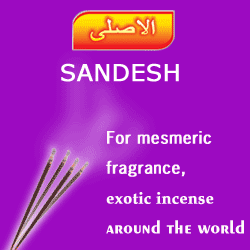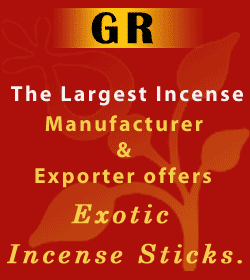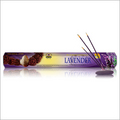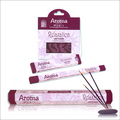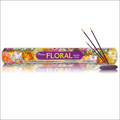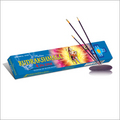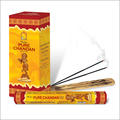|
|
| |
| Padma Perfumery Works Replenish your senses! |
| Rose Incense |
White Musk Incense |
Al Oudh Incense |
Sheik Al Arab Blue |
Jasmine Incense |
|
|
|
|
|
 |
 |
 |
 |
 |
|
|
|
Natural
Aloeswood
Aloeswood is a dark resinous heartwood produced by a type of evergreen trees called Aquilaria found mainly in the rainforests of northern India, Laos, Cambodia, Malaysia, Indonesia, Philippines, Borneo and Vietnam. It's scientific name is Aquilara Malaccensis Lam. or Aquilaria agallocha.
|
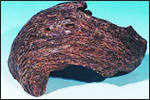 |
Cedar
Cedar is a type of coniferous tree, which grows abundantly at high altitudes of about 1000 to 3000 meters in the Himalayan and Mediterranean regions. Cedar Cedar trees can grow upto 60 meters tall and have redolent spicy-resinous wood, thick ridged or square-cracked bark, and broad, level branches.
|
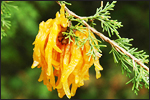 |
Sandalwood Essential Oil
Confident, fresh, happy and positive, these are the compliments that we give to ourselves when we know that we are looking good. When the concern is to look good , we acknowledge the worth of having a good skin.
|
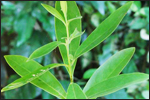 |
Cypress
Cypress refers to any of numerous evergreen, coniferous trees belonging to the family Cupressaceae and are found to grow abundantly in the northern temperate regions. Cypress trees are known to live for a very long time, the oldest being the Sarv-e-Abarkooh in Iran's Yazd CypressProvince, whose age is believed to be more than 4000 years.
|
 |
Juniper
Junipers are coniferous trees in the genus Juniperus and hail from the cypress family of Cupressaceae. There are more than 50 species in this genus, which occur almost throughout the world in different shapes, sizes and colors. Junipers are either deciduous Juniperor evergreen and range in size from low bushy shrubs to small trees which may grow upto 50 meters in height.
|
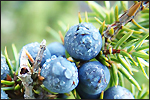 |
Cassia
The cassia tree is an evergreen tree native to tropical Asia. Also called "the tree of golden shower", the botanical name of this ornamental plant is Cassia fistula L and it belongs to the family of fabaceae. Its importance lies in its aromatic bark, which is used as Cassiaa spice and for many medicinal purposes.
|
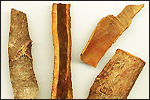 |
Cinnamon
Cinnamon is the inner bark of a group of evergreen tropical trees from the genus Cinnamomum. Although there are over hundred species of cinnamon, only two of them, namely Cassia and Ceylon Cinnamon, are commercially used. Native to Sri Lanka, the best quality of cinnamon in the world is harvested from the trees growing coastal strip near Colombo.
|
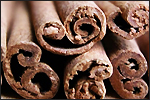 |
Amber
Amber is a crystalline fossilized tree resin of botanical origin and is native to India. This semi-solid mass of resins and gums has been prized for its color and natural beauty since the Neolithic times. It is yellow to reddish brown in color and can be clear to opaque. Archaeological discoveries document that Amber was among the first ornamental objects used by early men with instances that Amber goes as back as to thirty thousand years.
|
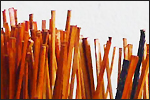 |
Bdellium
Bdellium is an aromatic resinous gum obtained from the shrubby trees of the genus Commiphora, which are found to grow abundantly in Arabia and India. These thorny shrubs grow upto a height of 4 meters and has a papery bark. They prefers arid and semi-arid climates and is tolerant of poor soil.
|
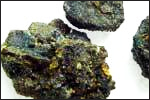 |
Benzoin
Benzoin is an aromatic resin, which is procured from the bark of trees belong to the Stryracaceae family. Known also as gum benzoin, luban jawi, Benjamin or Styrax benzoin, this resin is extensively used as an intermediate and fixative in the production Benzoin perfumes, incense, and medicine.
|
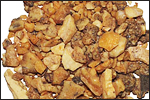 |
Copal
Copal is a crystallized aromatic resin procured from various species of the Bursera trees of Mexico and South America. The name has been inferred from the Spanish / Aztec Nahuatl word "copalli" which means incense, a task for which copal is mainly employed.
|
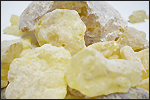 |
Frankincense
"Now when Jesus was born in Bethlehem of Judaea in the days of Herod the king, behold, there came wise men from the east to Jerusalem, saying, Where is he that is born King of the Jews? for we have seen his star in the east, and are come to worship him." - Matthew 2:1.
|
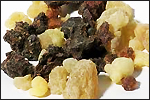 |
Myrrh
Myrrh is one of the oldest known incense materials and its value had often been compared to gold and other precious stones in ancient times. Be it for spiritual/religious ceremonies or for medical healing, myrrh was an essential constituent in almost every culture across the globe.
|
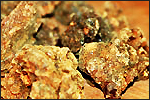 |
Labdanum
Labdanum is a sticky dark brownish aromatic resin procured from the Mediterranean shrubs of Cistus ladaniferus and Cistuscreticus, both of which belong to the rockrose family. The fragmant mass of the raw gum contains 20% or more of water and is plastic. Although these beautiful shrubs are indigenous to the temperate climate of Europe and the Mediterranean basin, they are also found to occur in some parts of North and South America.
|
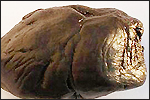 |
Dragon's blood
Dragon's blood is a bright red resin obtained from the scaly fruit of several trees of the Daemonorops family. It can also be obtained from different trees of the Dragon's Blood genus Croton, Dracaena, Calamus rotang and Pterocarpus. It has long been used in coloring varnish, lacquers and for its medicinal properties.
|
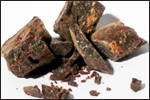 |
Mastic (plant resin)
Mastic, or Chios as it is more commonly known, is an aromatic resin obtained from the Pistacia lentiscus tree found traditionally in the Greek island of Chios, Aegean sea. This exquisitely scented gum or raisin is procured from the bark of these bushy shrubs. MasticKnown also as "Chios Tears" in their native language, this semi-translucent resin appears as pastel yellow or faint green at its best.
|
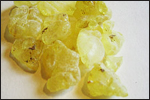 |
Storax
Storax is an aromatic gum resin exuded from the flowering plants of Liquidambar, which belongs to the family of family Altingiaceae. This aromatic gum has a sweet, balsamic fragrance with a tinge of vanilla and is used by perfumers to soften and meliorate the bottom notes of floral composition.
|
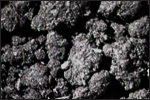 |
Galbanum
Galbanum's use in healing processes and in making incense since ancient times has well been documented in the Old Testament as well in ancient papyri scripts. It is a gum resin obtained from the large parennial herbs called Ferula galbaniflua which belongs to the Apiaceae family.
|
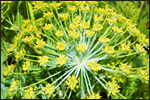 |
Elemi
Elemi is a pale yellowish aromatic resin collected from the Canarium luzonicum tree of the Burseraceae family. This resin has a sharp spicy lemon like scent with a tinge of pine and is widely used in perfumery and in making incense.
|
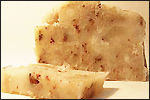 |
Camphor
You do not have to be a spiritual aspirant to understand the importance of camphor in the Orient, especially in India, where almost Camphorany form of religious activity or sacrament remains incomplete without the use of this perfumed product. In such cases of devotional worship, it is mainly used (burnt) to purify the atmosphere and promote meditation.
|
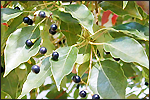 |
Sandarac
Sandarac is an aromatic resin that comes from the coniferous Tetraclinis articulata tree of the Cupressaceae family. This evergreen Sandaractrees are native to the Atlas mountainous regions of the North African country of Morocco. Sandarac was notably popular in the Italian Renaissance-era for its use in varnishes and oil paintings.
|
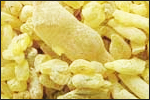 |
Guggul (Indian Myrrh)
Guggul is considered to be the most widely used herb in Ayurveda. It has been used since the commencement of recorded history ormaybe before, for its aromatic and medicinal properties. Guggul, in Sanskrit means "one that protects against germs" and refers to the plant as a whole, its derivatives as well as all the preparations that contain it as the primary ingredient.
|
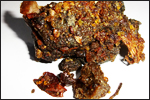 |
Opoponax
Often cited to have necromantic powers, the popularity of this perfumed resin in black magic as a protection spell to guard againstnegative influences and increase self awareness continues unabated since ancient-most times. Its fragrance is especially considered to be potent against parasitic entities, psychic vampires and negative thoughts that worm themselves into the mind.
|
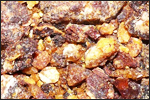 |
Tolu balsam
A popular fragrant vehicle in various aromatherapy treatment, tolu balsam also known as balsam of tolu (a variant of balsam of Peru), is an aromatic resinous secretion retrieved from Myroxylon toluifera. Since centuries, it has been used as a therapeutic herb and as fragrance in products like perfumes, candies, and chewing gums.
|
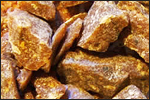 |
Patchouli
The strong, earthy, musky fragrance of pactchouli has always been very popular among the hippies and the bohemian crowd as it Patchouliwas very efficacious in energizing the body and connecting the spirit with the natural beauty of the planet. This aromatic herb has a long history of use in the fields of medicine, perfumery, cosmetics and traditional rituals.
|
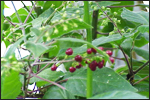 |
Sage
From warding off evil, counteracting snakebites, boosting stamina to increasing a woman's fertility, sage has long been used as a Sagevery powerful tonic herb. Rich in important components such as phenolic acids, flavonoids, diterpenoids, triterpenes and an essential oil which contains a-thujone, camphor, 1,8-ceneole and other monoterpenes, sage has also been put to a variety of culinary use as a kitchen herb.
|
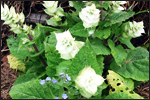 |
Bay
Anyone who loves Mediterranean cuisine is undoubtedly a lover of bay leaves. Fresh or dried bay leaves are never eaten on their own but are sprinkled in most Mediterranean dishes, especially those that have a long simmering time, like soups, stews, stock and braises, for imparting a gentle savory flavor and layered fragrance to the food.
|
Tea
One of the easiest ways to energize the body and mind without shelling out a fortune or inviting much of a side effect is by drinking a modest cup of tea. In fact, for many, tea acts like an antidote to many unpleasant and uninteresting things in life – long queues, lethargic afternoons, boring meetings, bad movies, nasty headaches and the like. Tea is also kind of a traditional ice-breaker – the best way to initiate or indulge in a conversation when you fall short of words.
|
 |
Balsam
Balsam, or the balsam poplar, is a deciduous tree that gives off a very pleasant odor when its leaves and buds blossom in spring. These aromatic buds and leaves have been used for their fragrance by civilizations since primordial times. They have a fresh, resinous, woody, sensual sweet aroma which is generally used as a base in perfumery and in making incense.
|
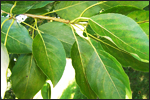 |
Clove
Clove is an antioxidant spice with a rich and interesting history. Put to both curative and culinary use by the Chinese, Romans and theGreeks since centuries, clove is still a favorite of many pharmacists and gourmet chefs world over. People pop raw cloves, grind them into a paste, sprinkle cloves/clove powder as an everyday ingredient in food, or use clove essential oil for bathing to keep various diseases at bay.
|
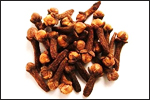 |
Lavender
Lavender's historic use and holy reputation stretching for more than 2,500 years is far from being ordinary. It is a herb whose Lavenderrefreshing aroma was fiercely pursued by the Egyptians, Phoenicians, and the Arabs. Even royalty across many lands swore by its extravagant fragrance.
|
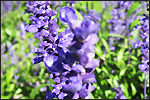 |
Saffron
More often than not, you will come across the spice saffron in the spice aisle of your neighborhood supermarket. Among those jarsand bottles brimming with common spices such as cinnamon, cardamom, cloves, cumin and cilantro, there would be jars filled with carefully wrapped transparent envelopes.
|
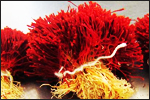 |
Rose Essential Oil
Immortalized by poets for its beauty and sweet fragrance, Rose is not just a flower to be admired for its scent and beauty but also for its numerous benefits. Rose essential oil, extracted from the steam destination of Rosa damascena is enriched with all the goodness of Rose. There are a variety of rose species, yet Damascus Roses are mostly used for oil extraction because of its strong aroma and highest oil content.
|
 |
Jasmine
The scent of jasmine is probably accepted universally and quintessentially an active ingredient in incense sticks, essential oils, perfumes, scented candles and many more. Not only the flower has a bewitching fragrance but also used in various purposes.
|
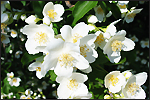 |
Coriander
Indian curries, Thai soups, Vietnamese salads or Mexican burritos - all these recipes owe their inherent flavor to a common herb- "Coriander". With coriander sprigs easily available in supermarkets and roadside bazaars, it is equally favorell.
|
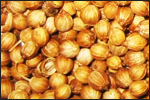 |
Cardamom
From tea, coffee, baked goods, pickles, desserts, curries to mulled wine, the spice Cardamom cardamom is used in a wide variety of food products. Especially, cardamom pods freshly picked up from the farm are extensively used in edible items in Northern Europe and the Middle East. Even in India, where cooking is synonymous to seasoning and tempering with spices, cardamom-flavored dishes reign the menus.
|
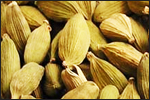 |
Juniper
Junipers are coniferous trees in the genus Juniperus and hail from the cypress family of Cupressaceae. There are more than 50 species in this genus, which occur almost throughout the world in different shapes, sizes and colors. Junipers are either deciduous Juniperor evergreen and range in size from low bushy shrubs to small trees which may grow upto 50 meters in height.
|
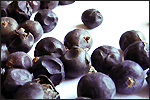 |
Nutmeg
The nutmeg tree is any of several species of bushy, evergreen and aromatic trees belonging to the genus Myristica. Native to the Banda Islands in the Moluccas of Indonesia, or Spice Islands, these trees bear long leaves, yellow blooms, and round fleshy fruits that encloses a brown egg-shaped seed.
|
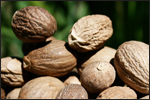 |
Star anise
Star anise is a rust-colored fruit of a small to medium evergreen tree (Illicium verum) of the magnolia family. Mostly cultivated inChina and Japan, these oriental trees attain a maximum height of around 26 feet and bear lanceolate leaves and axillary yellow-colored blooms.
|
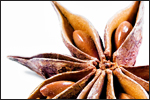 |
Vanilla
In commercial production of perfumes and aromas, Vanilla is one of the most widely used ingredients. It is a highly expensive spice, Vanillaprobably the most expensive one after saffron, and its pleasant floral aroma finds wide applications. It is also one of the most common form of flavoring food items, which is used in ice creams, chocolates, cakes, pastries, custards, biscuits, confectioneries and soft drinks etc.
|
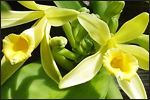 |
Vetiver
The roots of the vertiver plant has long been used for its spicy, woody, earthy and herbaceous fragrance. They are extensively used in Vetiver perfumes and incense. Its intoxicating fragrance is known to elate the spirit, calm the mind and body of excessive heat. These plants are indigenous to South India but now are commercially cultivated in Haiti, India, Java, Malaysia, Indonesia, Vietnam and the Reunion islands.
|
 |
Orris
Orris is an aromatic rhizome that comes from the flowering plants known as Florentine Iris. These plants are extremely popular Orris because of their magnificent blooms and are widely used to decorate gardens beds. They display such beauty and variety of colors that they are rightly christened after the Greek rainbow goddess "Iris".
|
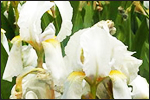 |
Calamus
Calamus is a aromatic rhizome that comes from the plant Acorus calamus which is a specie of the genus Acorus. The fragrant leaves and roots of this plant has been used for their aromatic as well as therapeutic benefits since ages. The rhizome was so very popular with the indigenous Indians that it was used as a medium of exchange and most Indians treasured it as a valuable commodity of various uses
|
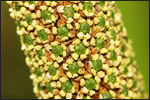 |
Spikenard
Widely used in anointing rituals, Spikenard oil has been prized since ancient times, as it uplifts and inspires the psyche and spirit to selfless acts of devotion. The New Testament substantiates how Mary Magdalene used it anoint the feet of Jesus Christ during the Last Supper.
|
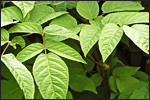 |
Galangal
Similar to Ginger in taste and appearance, Galangal is also one type of spice belonging to the ginger family. Like ginger, Galangal is Galangal also a root or rhizome and refers to four spices of plant namely, Galangal namely, Alpinia galanga(greater galangal), Alpinia officinarumor greater galangal (lesser galangal), Kaempferia galangal ( Kencur, aromatic ginger), Boesenbergia pandurata (Chinese ginger or fingerroot).
|
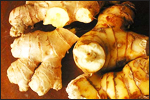 |
Costus
Costus refers to a beautiful flowering plant and its rhizome, which grows on high altitudes in the Himalayas. It commercially prized from ancient times because of the curative and aromatic properties of its roots. It is widely cultivated in Kashmir, Himachal Pradesh and Tibet for its essential oil, which is a premier ingredient in making incense.
|
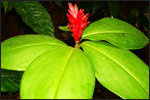 |
Musk
Musk has been an prominent incense material along with Frankincense, Myrrh and Amber. The redolent, penetrating essence of Musk musk reflects human hormonal elements and it has always been considered to be a sophisticated masculine fragrance since ages.
|
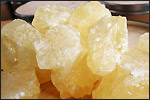 |
Operculum
Operculum is an anatomical part found in many sea and fresh water snails, which has long been used as an exquisite incense material. The operculum is connected to the posterior dorsal part of the foot and functions as a lid that seal the entrance of the shell when these soft beings retract.
|
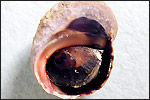 |
Patchouli
The strong, earthy, musky fragrance of pactchouli has always been very popular among the hippies and the bohemian crowd as it Patchouliwas very efficacious in energizing the body and connecting the spirit with the natural beauty of the planet. This aromatic herb has a long history of use in the fields of medicine, perfumery, cosmetics and traditional rituals. The word Patchouli is derived from the Tamil word "patch" meaning green and "ilai" meaning leaf.
|
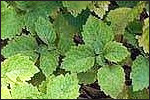 |
Cedar Essential Oil
Characterized by a woody spicy aroma, Cedar wood essential oil is extracted from the distillation of wood pieces of Atlas Cedarwood tree, scientifically termed as Juniperus Virginiana, it is a plant of cold climate and found in high altitudes. The oil has many highly effective properties and it is one of the ancient essential oils, perhaps the first essential oil to be extracted from plant.
|
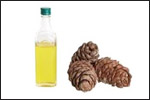 |
Sandalwood Essential Oil
Confident, fresh, happy and positive, these are the compliments that we give to ourselves when we know that we are looking good. When the concern is to look good , we acknowledge the worth of having a good skin.
|
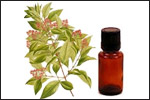 |
Jasmine Essential oil
Jasmine grandiflorum, from which jasmine essential oil is mostly extracted has every good reason to be hailed as "the king of Jasmine Essential Oilflowers". One of the oldest and the most expensive of all scented botanicals, this exotic and highly volatile oil has been used widely indifferent healing techniques including traditional Chinese medicine and the age-old Indian system of Ayurveda.
|
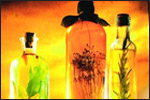 |
Rose Essential Oil
Immortalized by poets for its beauty and sweet fragrance, Rose is not just a flower to be admired for its scent and beauty but also for its numerous benefits. Rose essential oil, extracted from the steam destination of Rosa damascena is enriched with all the goodness of Rose. There are a variety of rose species, yet Damascus Roses are mostly used for oil extraction because of its strong aroma and highest oil content.
|
 |
Ylang-ylang
Derived from the flowers of the Cananga odorata tree through processes like steam distillation and solvent extraction, ylang ylang oil Ylang Ylang is a potent oil with extensive aromatherapy use. This oil is considered as highly effective in treating a host of health problems and disorders. As an aphrodisiac, it is used to boost sensuality. Its exotic fragrance and therapeutic benefits are also harnessed in ameliorating skin irritations, stabilizing temperamental changes, curing depression, soothing the nervous system, etc.
|
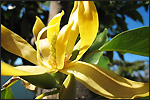 |
|
|
|


